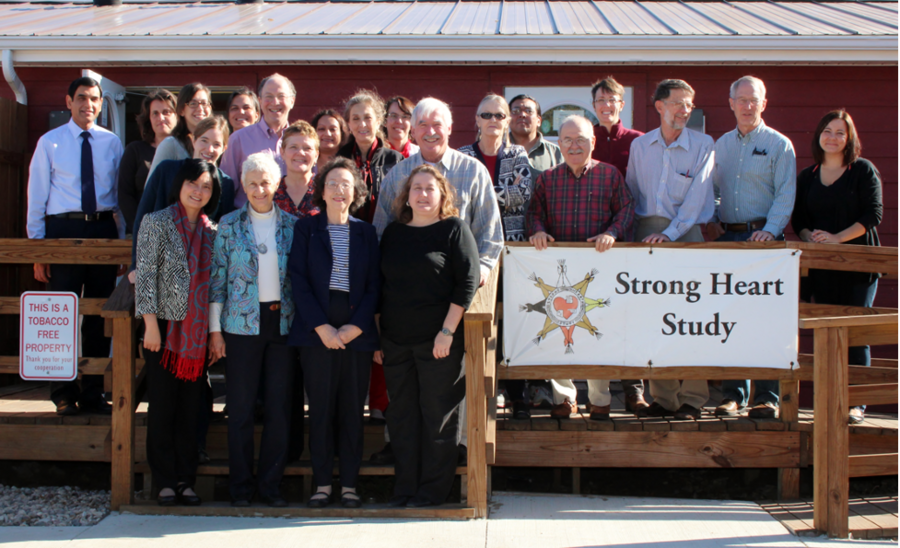Human Populations
Our collaborations on population-based studies focus on family-based designs and look at molecular genetic variation and how it affects inter-individual variation in disease risk and treatment, particularly heart disease, hypertension, type 2 diabetes, kidney disease, obesity and their metabolic risk factors and consequences. We have partnered with American Indians (the Strong Heart Study [SHS] with representatives from 12 U.S. tribes; and the Zuni Indians [GKDZI]), Alaskan Eskimos (GOCADAN), Mexican Americans (VIVA la Familia and GEMM) and African Americans (PATH). These underserved minority populations with increased prevalence of metabolic and complex diseases are understudied relative to populations of European descent, especially when looking at how genetic risk factors affect disease and are modified according to ancestral backgrounds and environmental risk factors. We mainly use a family-based study design with multigenerational pedigrees, providing rich datasets for identification of rare and population-specific genetic variants. My previous research and current lab have generated molecular genetic data using samples from these population groups. In some cases it is the first generation of such data for a particular population group.
Strong Heart Study
A special focus of Dr. Cole’s work is on preserving and promoting the utility and potential of the Strong Heart Study (SHS) as a national resource for research studies to ultimately reduce the prevalence and incidence of metabolic-related disease and to improve public health in general in the American Indian population. The SHS is one of the largest (>7,600 participants) and longest-running (since 1988) epidemiological and genetic studies of American Indians in the US. SHS showed that American Indians have some of the highest rates of type 2 diabetes and cardiovascular disease (CVD) relative to other population groups in the US, helped determine type 2 diabetes as a major risk factor for CVD, and has been used by the Indian Health Service to develop treatment guidelines. The SHS pioneered the use of principles of community-based participatory research, and has been involved in capacity building and dissemination of study results with its community partners since its inception. Dr. Cole has been part of the SHS since 2000, currently as lead of the SHS Genetics Center (since 2008) and Chair of the SHS Steering Committee (since 2014), representing five SHS centers, including its tribal partners.
Goals
Our goal is to characterize molecular variation and how it affects inter-individual variation in disease risk and treatment. In a collaboration on childhood obesity in the VIVA la Familia cohort, we identified a novel loss-of-function mutation (G55V) in MC4R and confirmed that it was responsible for the severe obesity seen in six related children. We also showed associations between MC4R variants and obesity measures in the entire childhood cohort, demonstrating that variants in MC4R have impacts on both rare, severe obesity as well as population-level obesity traits. In the SHS, we investigated the association of blood DNA methylation (DNAm) with incident coronary heart disease (CHD) using genome-wide methylation data and found an association between a complex blood epigenomic signature and CHD that was largely different across populations. As DNAm is influenced by environmental factors as well as inheritance, this supports the need for precision medicine approaches and the inclusion of data from all population groups when identifying inherited risk of disease.
Non-human Primate Colonies
The Southwest National Primate Research Center (SNPRC) maintains three non-human primate (NHP) research colonies, with a goal to supply animals for researchers across the U.S. Dr. Cole helps lead the efforts at collecting genome-wide data to be used to inform breeding strategies and research studies. Work by the Colony Administration and Genomics Component of the SNPRC has focused on cost-effective methods to collect genome-wide data on all animals in research colonies at SNPRC. These data are used to inform breeding decisions with a goal to maintain genetic diversity and ultimately the health of the colonies.

